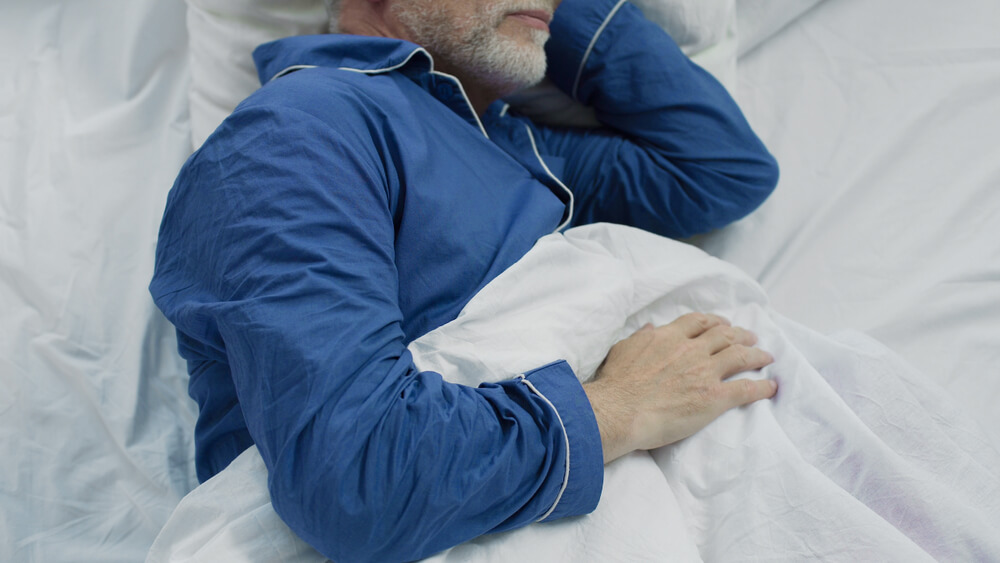 March 11, 2021
March 11, 2021
Everyone needs a good night’s sleep. There are often changes in our sleeping patterns that emerge as we age, like waking up earlier and becoming sleepy sooner. If your older loved ones are experiencing disturbed sleep or are waking up tired every day, these are not normal parts of aging and could be symptoms of insomnia.
Sleep is a key part of maintaining your emotional and physical health. Older adults who don’t get enough quality sleep are more likely to experience attention and memory problems, excessive drowsiness, and depression. Lack of sleep can also lead to health problems including, diabetes, weight problems, and cardiovascular disease.
How Much Sleep Do Older Adults Need?
Sleep requirements might vary between individuals, but most healthy adults need seven to nine hours of sleep a night. How you feel is more important than the number of hours. Waking up and not feeling well-rested or tired during the day are clues that you are not getting enough sleep.
Why Do Seniors Have Trouble Sleeping?
There can be many reasons why seniors might not get enough sleep.
- Medical conditions or pain. Health issues such as arthritis, osteoporosis, diabetes, asthma, Alzheimer’s disease, or frequent urination can prevent individuals from sleeping. Seniors can talk to their doctor to address any medical issues that might be interfering with getting rest at night.
- Poor sleep environment and habits. Sleeping at unusual hours, watching TV, or consuming alcohol before bedtime can create poor habits. Make sure the room is comfortable, dark, and quiet when it is time to sleep. If mobility at night is a concern, get a nightlight.
- Medications. Seniors tend to take more medications than younger adults. Certain medications can impair sleep. Seniors and their families can speak to their doctors to make medication changes to improve the quality of their sleep.
- Lack of exercise. Being too stationary can make you feel either sleepy all the time or not tired enough at night. Regular aerobic exercise is good for the mind, mood, and physical health.
How to Encourage Better Sleep and Prevent Insomnia
Generally, you can improve sleep by adjusting the environment and making healthier daytime habits. Everyone is different, and it takes time to find the right changes that work best.
- Have a scheduled bedtime. Going to bed and waking up at the same time every day, even on weekends, can help set a better sleep pattern.
- Naturally boost melatonin. The body naturally produces melatonin, the hormone that makes you sleepy, but too much artificial light can suppress that production. Use low-wattage lights where it’s safe and turn off the TV and backlit devices at least an hour before bedtime.
- Make the bedroom dark, quiet, and cool. Light, sound, and temperature can all affect how we sleep. Seniors are more sensitive to noise, so using a sound machine or earplugs can help block unwanted noise.
- Limit caffeine intake. Drink fewer caffeinated drinks like coffee, tea, and soda during the day, especially in the evening.
- Exercise during the day. Getting enough physical exercise releases chemicals that promote better sleep. Even for seniors with mobility issues, there are activities that can prepare the body for a good night’s sleep. Consult your doctor before trying new fitness exercises.
Finding Peace of Mind at Night
Injuries from falling affect a disproportionate amount of seniors and can lead to complex health problems. The vast majority of falls occur during the night due to limited vision or mobility issues. Having additional assistance in the home can ensure seniors are safe at night, no matter the situation. A caregiver can also help your loved one practice daily habits that lead to better sleep.
If you would like to know more about how an in-home caregiver can assist your loved one and improve their quality of care, let us know.



